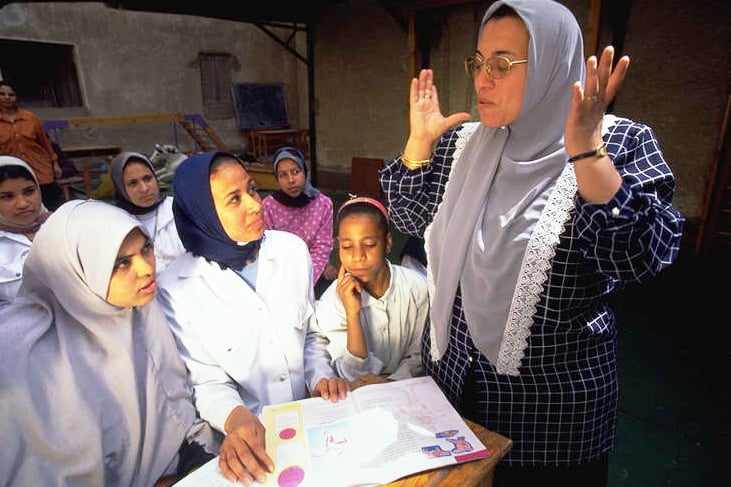The report by the Information and Decision Support Centre, the research arm of the Egyptian Cabinet, was published on 29 December, but is not yet available online.
It states that at the end of 2008 the number of people living with HIV in Egypt was 3,735, including 963 (25.8 percent) who had developed AIDS.
Local NGOs dealing with HIV/AIDS and the UN Joint Programme on HIV/AIDS (UNAIDS) say this figure could be far higher.
While the number of HIV/AIDS cases in Egypt is low compared to many other countries, the report’s findings have come as a shock to many of those asked in this predominantly conservative Muslim society where extramarital sex is banned.
“Risky sexual activities can’t be controlled,” Magdy Badran, a leading Egyptian immunologist, told IRIN. “Also, there’s a real expansion of drug addiction in this country. These are things that can spread the disease dramatically.”
The report, the first of its kind to be produced by such a high-level body, said HIV cases had increased six-fold between 1994 and 2008. It said HIV cases could be found in all Egyptian governorates with the exception of northern and southern areas of the Sinai Peninsula. However, the country’s two most populous cities, Cairo and Alexandria, had most cases.
The report said around 75 percent of Egyptians living with HIV were aged 25-49, the most productive segment of society.
Sex education
The authors of the report said one reason for the rise in cases might be the lack of sex education in schools.
“Our schools must offer proper health and sex education about HIV transmission,” Badran said. “We must work hard to fight drug addiction, encourage marriage and put an end to the presence of children on the streets.”
Some NGOs estimate the number of street children in Egypt to be more than three million, although the government disputes that number. The report said these children are the most vulnerable in terms of contracting HIV/AIDS.
It added that the steady increase in the number of detected HIV cases was a warning for the whole population.
ae/ed/cb
This article was produced by IRIN News while it was part of the United Nations Office for the Coordination of Humanitarian Affairs. Please send queries on copyright or liability to the UN. For more information: https://shop.un.org/rights-permissions
